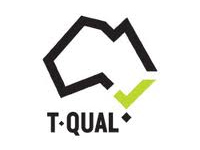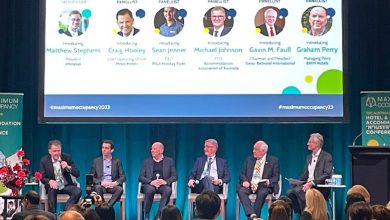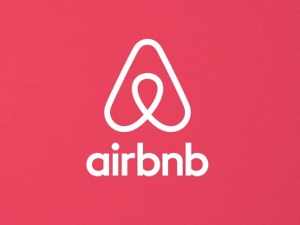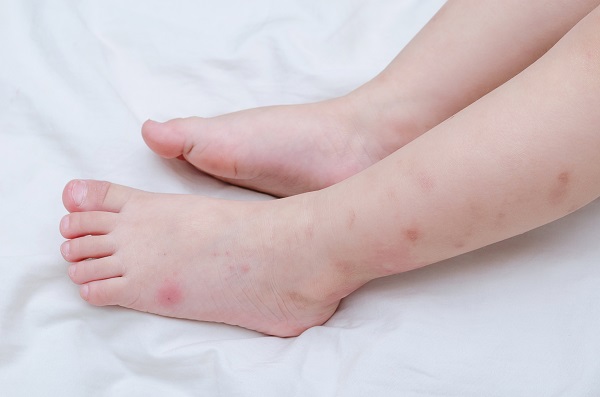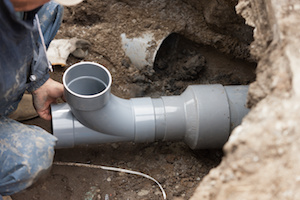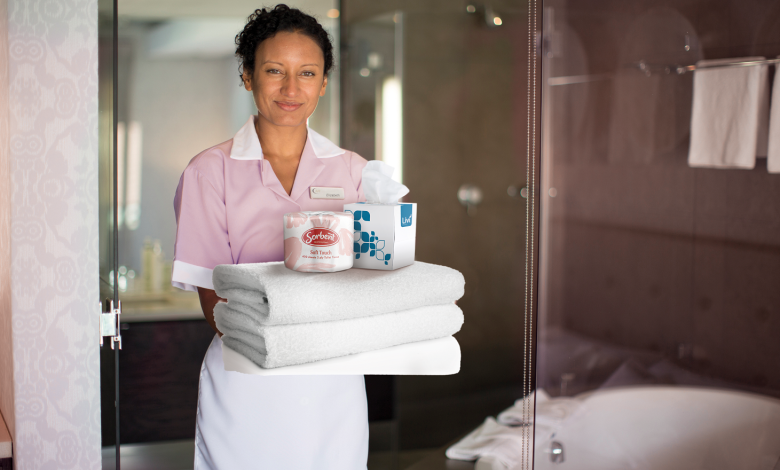
Wipe out competition with the right paper products
Warning: Don't be an accommodation business that skimps on toilet paper, ignore small but essential considerations and guests will check out
Toilet paper and facial tissues are big-ticket items for accommodation properties because of their regular consumption, quality is everything because it is seen as a reflection of the standard of the business.
Accommodation properties use a high volume of paper products, in many ways. Paper napkins are provided in restaurants and bars, and paper towels are often found in public bathrooms and in the back of house where staff might need to clean up spills. But toilet paper is the most used paper product, provided in every guest bathroom and public toilet. Facial tissues are also highly featured items, throughout the whole property.
Our latest AccomNews print issue is available now. Read it HERE
The amount used is dependent on the number of guestrooms and the amenities offered, such as a function centre or large and popular restaurant. The type of toilet paper products used in an establishment will depend on the quality of the accommodation, its guest demographic, and individual preferences.
Many studies have been conducted on the type of toilet paper people prefer. Generally, consumer report studies say abrasive is a big no-no, with most people preferring soft and plush. Strong, thick, and absorbent are also common demands, understandable because no one wants their toilet tissue to tear or fall apart mid-use.
Preferences are very personal, and most people have a favourite toilet tissue brand they purchase for their own home with most households using three-ply or greater.
An accommodation business must recognise how much the quality of its toilet paper will affect guest experience. A study conducted by the market research firm STR, found that guest satisfaction is positively correlated with the quality of the toilet paper provided by hotels.
According to the study, most hotels risk disappointing guests by using standard, one-ply toilet paper with only the premium and luxury hotels offering, two-ply or quilted toilet paper.
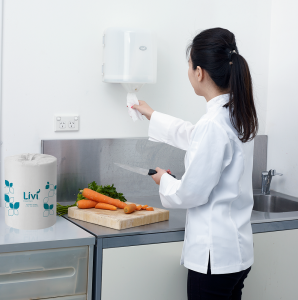
Jeff Lewis the National Business Manager of Solaris Paper warned that guests who check into a hotel with one-ply toilet paper may want to reconsider their accommodation choices.
He said: “We find good accommodation managers demand “soft, white and strong” for their toilet paper and facial tissues.
“Ply, softness, and strength are all important qualities, but so is emboss. We pay particular attention to emboss because it gives the toilet paper bulk, ensuring the ply does not separate and giving it a nice aesthetic, which is vital for the premium end of the market.”
He said most upmarket hotels use three-ply toilet paper.
“But even some luxury properties try to skimp on toilet paper,” he admitted.
When paying to stay at a luxury establishment guests expect luxurious toilet paper but sometimes, they don’t even get what they’re used to at home. In the accommodation business, it’s always the small considerations and attention to detail that add up and create a lasting impression.
He said: “Often the decision maker for procurement of washroom paper is the head of housekeeping and cost is always a consideration, but quality and guest satisfaction should be the priority.”
An increased focus on sustainability is one of the biggest industry trends and providing environmentally friendly paper products is an easy way to showcase your business’s environmental credentials and impress your guests.
Therefore, to improve guest satisfaction and reduce your property’s environmental impact you should provide high-quality, sustainably certified paper products, and encourage your guests to use them responsibly.
Mr Lewis said: “With the recognition that we all play a role in our impact on the environment, hotel chains across the world now demand responsible sourcing with complete transparency in the paper products they purchase.”
Solaris Paper’s strategic supply partner, APP (Asia Pulp & Paper) has long implemented policies of zero deforestation and zero illegal logging.
He told us: “We can proudly say we plant one million trees a day. The eucalyptus and acacia trees grow rapidly in a tropical environment and reach full maturity at five years.
“Furthermore, supply practices throughout the supply chain are independently certified as sustainable by PEFC (Programme for the Endorsement of Forest Certification) and we are proudly a SEDEX member for responsible sourcing.”
SEDEX is the world’s largest data platform for supply chain assessment.
“Now big organisations want much more detail about where products come from. Recently an accommodation group linked into our SEDEX audit to review it,” Mr Lewis said.
“They were impressed that we have a chain of custody, meaning we can trace every toilet roll we make back to the seedling that it came from on our sustainable plantations.”
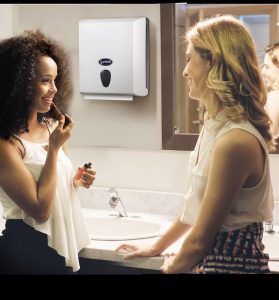
Since COVID protocols were introduced, most hotels now leave fresh toilet paper and a fresh box of tissues in guestrooms at every check-in, but this practice can increase waste. Wastage can also be exacerbated by guests and staff using more paper than they need to.
A report by the Natural Resources Defense Council (NRDC) found that a hotel can save money and reduce environmental impact by encouraging its guests to use less. The report recommended the introduction of signs in bathrooms to encourage guests to only use what they need. Also, for hotels to supply high-quality, two-ply toilet paper that requires less usage.
Mr Lewis agreed that it makes sense to supply fresh paper products to each new guest.
“It’s hygienic and a more premium practice,” he said “but to help reduce waste, I would suggest presenting paper products for guests in smaller formats.
“Most properties now provide 100-sheet tissue boxes in their guestrooms or a 90-sheet cube box, which also look more stylish, take up less space and produce less waste. Larger 200-sheet boxes can be used in high traffic areas such as front desks or spas.”
Mandy has over 17 years of accommodation and tourism industry writing experience and is Editor of AccomNews & Resort News, Publisher of SchoolNews & Director of Multimedia Pty Ltd. She is a retired registered nurse with a 25-year NHS career that followed a few unforgettable years in hotel housekeeping.

